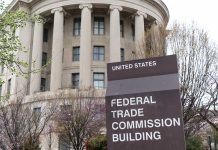
So here’s a fun fact for your morning coffee: Corporate America has been on a borrowing binge worse than your teenager with a new credit card. And guess what? It’s putting the entire market at risk. Now, this isn’t just some highfalutin financial jargon; it’s something that could hit your retirement savings hard. But let’s dive into how corporate debt levels are making us all a little more vulnerable.
The Rise in Corporate Debt
Despite all the economic growth hype, corporations have been piling on debt like there’s no tomorrow. The Federal Reserve has kept interest rates ridiculously low, making borrowing cheap. Companies took advantage of this, but there’s a catch: when debt grows faster than profits, you’ve got a problem.
While it might seem like businesses are doing great, this mountain of debt has created a vulnerability that could lead to a market collapse. A surge in interest rates or an economic downturn could expose the fragility of these companies, making it a risky business for all stakeholders, including you.
Market Vulnerability
How does this corporate debt translate into market vulnerability? Simple. If companies can’t pay back their loans, it leads to defaults, massive layoffs, and an overall economic downturn. “The risk of widespread corporate failures poses a significant threat to global financial stability,” noted John Butler from the Financial Stability Board.
https://mobile.twitter.com/CreditBenchmark/status/1236994581222301696
Defaults and Lowered Credit Ratings
The more debt a company has, the higher the likelihood of default. When companies start defaulting on their obligations, it not only affects shareholders but also has a ripple effect on other economic sectors. It can lower credit ratings, making it even more expensive for these companies to borrow again. Cue the vicious cycle of debt.
The Impact on Your Investments
Your 401(k) or retirement savings are not immune. When companies start struggling to service their debt, the stock market reacts. Volatility increases and the value of your investments can take a hit. “A sudden shift in market conditions could result in a wave of financial instability,” said Janet Yellen, former Chair of the Federal Reserve.
Potential Solutions
What can be done? For starters, corporations need to focus on enhancing their balance sheets. Less debt, more equity. The government can also step in by ensuring there are tighter regulations on corporate borrowing.
Conclusion
Corporate debt isn’t just a buzzword—it’s a potential ticking time bomb. Its implications are substantial, affecting everything from job security to the health of your investment portfolio. It’s critical to keep an eye on how this unfolds, as it directly impacts not just large financial institutions, but everyday Americans.
Stay informed, stay vigilant. The stakes are too high to look away.
“The risk of widespread corporate failures poses a significant threat to global financial stability.”
https://mobile.twitter.com/CreditBenchmark/status/1236994581222301696
Sources:
More From Around The Web:
CORPORATE DEBT MARKET FEARS MAY BE COMING TRUE
THERE’S A SURGE IN CORPORATE DEBT AND IT’S A RISK TO THE GLOBAL ECONOMY
DEBT CRISIS WILL UNLEASH ‘CARNAGE’ ON STOCK MARKET AND ECONOMY: MICHAEL PENTO
IN-DEBT TO BANKS, A SYSTEM RIGGED AGAINST YOU
https://mobile.twitter.com/CreditBenchmark/status/1236994581222301696
https://twitter.com/BillAckman/status/1686906272937869312














